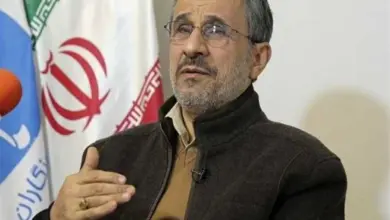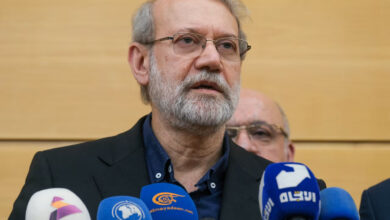Among the key initial revelations in the more than 250,000 secret US embassy cables that WikiLeaks began publishing on 28 November was the level of hostility towards Iran expressed by several Arab leaders in private diplomatic discussions. The disclosures made headlines around the world and the Obama administration went so far as to tout the news as a vindication of its foreign policy.
"The cables confirm the fact that Iran poses a very serious threat in the eyes of many of her neighbors, and a serious concern far beyond her region," US Secretary of State Hillary Clinton said in her first public comments after the leak. "The concern about Iran is well founded, widely shared, and will continue to be at the source of the policy that we pursue with like-minded nations to try to prevent Iran from acquiring nuclear weapons."
The leaked diplomatic cables appear to validate Clinton's claim.
One memo details King Abdullah of Saudi Arabia's "frequent exhortations to the US to attack Iran and so put an end to its nuclear weapons program." Abdullah reportedly called on the Americans "to cut off the head of the snake." Another memo describes how King Hamad bin Isa al-Khalifa of Bahrain "argued forcefully for taking action to terminate their [Iran's] nuclear program, by whatever means necessary." Another cable recounts Zeid Rifai, then the president of the Jordanian senate, telling a senior US official: "Bomb Iran, or live with an Iranian bomb. Sanctions, carrots, incentives won't matter." Another memo describes Egyptian President Hosni Mubarak as having "a visceral hatred for the Islamic Republic, referring repeatedly to Iranians as 'liars', and denouncing them for seeking to destabilize Egypt and the region."
And the list goes on.
The Obama administration is now citing these claims to warrant its aggressive stance towards Iran. What the US government and the US mainstream media fail to mention is that those Arab governments–Saudi Arabia, Bahrain, Jordan, Egypt, the United Arab Emirates–are all undemocratic, authoritarian regimes that receive military, financial and diplomatic support from the United States and do Washington's bidding in return.
While the views of these Arab leaders accord fully with US foreign policy objectives they do not reflect the broader sentiment of the people they represent. A recent Arab public opinion poll by the Brookings Institution found that the vast majority of the Arab public sees Israel and the United States, not Iran, as the biggest threats to the region. In another striking result, 57 percent of those polled indicated that Iran's acquisition of nuclear weapons would be "positive" for the Middle East.
"When [the Obama administration] talks about Arabs, they mean the Arab dictators, not the population, which is overwhelmingly opposed to the conclusions that the analysts here–Clinton and the media–have drawn," said Noam Chomsky, the renowned political activist and professor emeritus at the Massachusetts Institute of Technology. "What that reveals is the profound hatred for democracy on the part of our political leadership."
Unsurprisingly, the Israeli government is also claiming the leaked diplomatic cables vindicate its policy towards Iran. "The documents showed support in many quarters for Israel's assessments, especially on Iran," said Israeli Prime Minister Benjamin Netanyahu. "Our region has been hostage to a narrative that is the result of 60 years of propaganda, which paints Israel as the greatest threat. In reality leaders understand that that view is bankrupt. For the first time in history there is agreement that Iran is the threat."
Agreement amongst a handful of corrupt, dictatorial US-allied Arab leaders, yes. Not the people they rule over. Contrary to what Netanyahu may claim, Israel continues to be perceived by the majority of Arabs as the number one threat, in part because of its nuclear arsenal, which is believed to contain as many as 200 warheads.
"I think the Arab public today woke up wiser than before, more cynical than before, and certainly more critical of the government," said As'ad Abu Khalil, a professor of political science at California State University, Stanislaus who runs the "Angry Arab News Service" blog. "You see all these governments competing, trying to bring up the issue of Iranian nuclear weapons. Not a single Arab leader in those discussions brought up the issue of the massive Israeli WMD program that has been going on for decades."
Meanwhile, the leaked cables paint a chilling picture of the prospect of an Israeli military strike on Iran. The US embassy in Tel Aviv reports in one memo: "The IDF [Israeli Defense Force], however, strikes us as more inclined than ever to look toward a military strike, whether launched by Israel or by us, as the only way to destroy or even delay Iran's plans."
Another memo, dated November 2009, details a meeting between senior US and Israeli officials in Tel Aviv: "The GOI [Government of Israel] described 2010 as a critical year–if the Iranians continue to protect and harden their nuclear sites, it will be more difficult to target and damage them. Both sides then discussed the upcoming delivery of GBU-28 bunker busting bombs to Israel, noting that the transfer should be handled quietly to avoid any allegations that the USG [US government] is helping Israel prepare for a strike against Iran."
Two nuclear-armed states discussing military strikes and bunker buster bombs. Small wonder the majority of Arabs see Israel and the United States as the biggest threats around.
Sharif Abdel Kouddous is a producer for the independent TV/radio show Democracy Now! Some of the material for this piece is drawn from interviews broadcast on the program.




